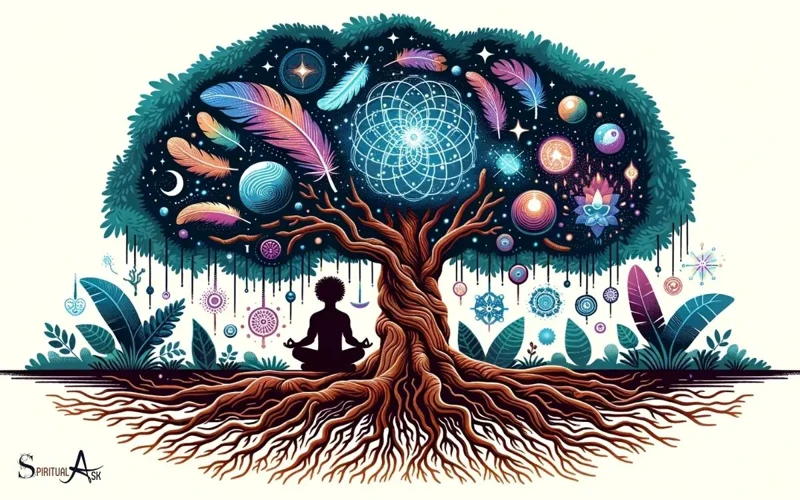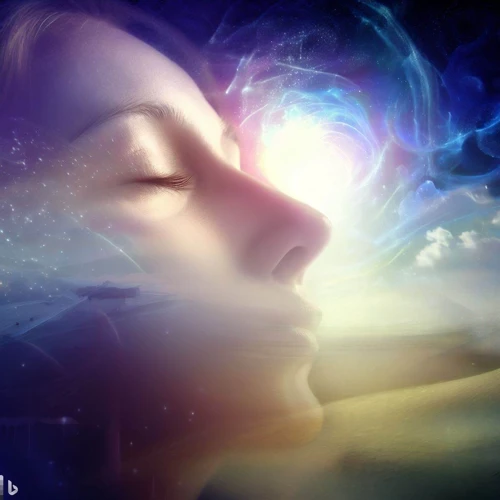Have you ever had a dream about the rapture that left you feeling confused, intrigued, or even frightened? Dreams about the rapture can be incredibly vivid and filled with symbolism, making it important to understand their meaning and significance. In this article, we will explore the concept of rapture and its theological background, analyze the symbolism in your dream, interpret common rapture dream scenarios, and explore personal associations and emotions. By understanding the messages behind these dreams, you can seek spiritual growth and fulfillment in your waking life. So, let’s dive into the mysterious world of dream interpretation and decode the meaning behind your dream about the rapture!
Understanding the Concept of Rapture

The concept of rapture has its roots in Christian theology and refers to an event in which believers in Jesus Christ are taken up to heaven, either before or during the end times. This idea of a sudden removal of faithful individuals from the earthly realm is often associated with the second coming of Christ and the purification of the world. The interpretation of rapture varies among different Christian denominations and scholars, but it generally represents the hope for eternal life and salvation. To gain a deeper understanding of this concept, it is essential to explore its theological background and biblical references to establish a foundation for decoding the meaning of your dream.
1. Theological Background of Rapture
The theological background of rapture can be traced back to various interpretations of biblical texts and prophecies. One influential viewpoint is known as pre-tribulation rapture, which suggests that believers will be taken up to heaven before a period of tribulation on Earth. This belief is based on passages such as 1 Thessalonians 4:16-17, which describes the “catching away” of believers to meet the Lord in the air. On the other hand, post-tribulation rapture proponents argue that believers will go through the tribulation before being gathered to Christ. Additionally, some theologians reject the concept of rapture altogether, interpreting biblical references symbolically rather than literally. Understanding the theological background of rapture can provide insight into the different perspectives and interpretations of this eschatological event.
2. Biblical References to Rapture
Biblical references to rapture can be found in passages such as 1 Thessalonians 4:16-17, which describes believers being caught up in the clouds to meet the Lord in the air. This passage is often interpreted as supporting the idea of the rapture. Another reference is found in Matthew 24:40-41, where Jesus speaks of two people in the field, with one being taken and the other left behind. These biblical references provide a context for understanding the concept of rapture and can help us interpret the symbolism and messages within our dreams.
Analyzing the Symbolism in Your Dream

When it comes to dreams about the rapture, it’s essential to analyze the symbolism present in your dream. Dreams often communicate through symbols and metaphors, using imagery to convey deeper meanings. In the context of the rapture, common symbols include ascension and transformation, reflecting a desire for spiritual upliftment and a fear of apocalyptic events. Ascension represents the longing for transcendence and a shift towards a higher state of consciousness, while transformation denotes a profound change or metamorphosis. By delving into the symbolism within your dream, you can uncover hidden messages and gain insights into your spiritual journey. So, let’s explore the different symbols present in dreams about the rapture and decipher their significance.
1. Ascension and Transformation
One possible interpretation of a dream about the rapture is the symbolism of ascension and transformation. Just as believers are believed to ascend to heaven during the rapture, this dream scenario can represent a desire for personal growth and a longing for spiritual upliftment. It may signify a yearning to rise above earthly concerns and embrace a higher state of consciousness. The dream could be prompting you to let go of old patterns, beliefs, or attachments that are holding you back from your true potential. Embracing this symbolism can open doors for personal transformation and a deeper connection with your spiritual self.
2. Desire for Spiritual Upliftment
In the context of dreaming about the rapture, one possible interpretation is that it reflects a desire for spiritual upliftment. This dream could signify a yearning for a deeper connection with the divine and a longing to experience a profound spiritual transformation. It may indicate that you are seeking higher truths, enlightenment, or a closer relationship with a higher power. Your subconscious mind may be urging you to embark on a journey of self-discovery and spiritual growth. Exploring your spiritual beliefs and practices can help nurture this desire for upliftment and provide guidance on your path towards a more meaningful and fulfilling spiritual life.
3. Fear of Apocalyptic Events
For some individuals, a dream about the rapture may stem from a deep-seated fear of apocalyptic events. In this scenario, the dream may symbolize anxieties and concerns about the end of the world or catastrophic events that could potentially bring about the destruction of humanity. These dreams might reflect a sense of vulnerability and powerlessness in the face of global issues such as climate change, political instability, or societal unrest. Exploring these fears and addressing them in a healthy and constructive manner can help alleviate anxiety and promote a sense of empowerment.
Interpreting Common Rapture Dream Scenarios

Dreams about being left behind during the rapture can evoke feelings of fear, abandonment, or insecurity. This scenario may symbolize a fear of not meeting certain spiritual expectations or doubts about one’s faith. It could also reflect feelings of being left out or left behind in other areas of life.
Experiencing the ascension in a rapture dream can signify a deep longing for spiritual growth, transcendence, or a desire for a closer connection with the divine. It may suggest a need to elevate one’s consciousness and embrace a higher spiritual purpose.
Dreams of witnessing divine judgment during the rapture can evoke a sense of awe, fear, or guilt. These scenarios may serve as a reflection of one’s own moral compass, highlighting a need for self-evaluation or a fear of facing consequences for past actions.
1. Being Left Behind
When you dream about being left behind in the context of the rapture, it can evoke feelings of fear, abandonment, and uncertainty. This dream scenario often symbolizes a deep-seated fear of missing out or being excluded from something significant in your waking life. It may reflect a sense of inadequacy or a fear of not meeting expectations. Alternatively, it could signify a fear of being left behind spiritually or missing out on spiritual growth. It’s crucial to examine your own beliefs and emotions surrounding this dream and consider how it relates to your personal experiences and relationships. By exploring the underlying meanings and emotions associated with being left behind, you can gain valuable insights into your own fears and aspirations.
2. Experiencing the Ascension
Experiencing the ascension in a dream related to the rapture can hold profound symbolism. The ascension represents a spiritual journey and a transformation of the self. It signifies transcending earthly limitations and reaching a higher state of consciousness or spiritual enlightenment. When you dream about experiencing the ascension, it may indicate that you are longing for personal growth and a deeper connection with the divine. This dream scenario can be a reflection of your desire to elevate yourself spiritually and move closer to your higher purpose. It is important to reflect on the emotions and sensations you felt during the ascension in your dream, as they can provide valuable insights into your spiritual journey. Consider exploring practices such as meditation or engaging in self-reflection to further nurture your spiritual connection.
3. Witnessing Divine Judgement
Witnessing divine judgement in a dream about the rapture can be a powerful and overwhelming experience. In this scenario, you may find yourself observing the consequences and outcomes of the rapture event. This dream could symbolize a deep-seated fear of divine judgement or a concern about the state of your own spiritual well-being. It may also reflect a desire for justice and righteousness in the world. By exploring the meaning behind witnessing divine judgement in your dream, you can gain insight into your fears, hopes, and beliefs surrounding the concept of judgement and the end times.
Exploring Personal Associations and Emotions

When exploring the personal associations and emotions related to your dream about the rapture, it is vital to reflect on your belief system and how it influences your interpretation of the dream. Consider whether you have a strong religious background or if you hold any specific beliefs about the end times and salvation. Your personal associations may also include any fears or desires you have related to spiritual upliftment and transformation. Are you seeking a deeper connection with the divine or a sense of purpose in your life? Additionally, it is crucial to uncover any hidden desires or fears you may have regarding the apocalyptic events portrayed in your dream. These emotions and associations play a significant role in understanding the meaning behind your dream and can provide valuable insights into your spiritual journey.
1. Examining Your Belief System
When trying to interpret a dream about the rapture, it is important to start by examining your belief system. Your personal beliefs and religious upbringing can greatly influence the symbolism and meaning of your dream. Reflect on your religious or spiritual views and consider how they may relate to the concept of the rapture. Are you someone who holds strong faith and believes in an afterlife? Or do you have doubts or uncertainties about spiritual matters? Your dream may be reflecting your beliefs or challenging them. Take some time to introspect and explore the role of your belief system in shaping the symbolism of your dream.
2. Uncovering Hidden Desires and Fears
- Uncovering Hidden Desires: Dreams about the rapture can serve as a window into our subconscious, revealing hidden desires that we may not be fully aware of in our waking life. This could include a longing for spiritual connection, a desire for personal growth and transformation, or a yearning for a sense of purpose and meaning. By paying attention to the emotions and symbols present in the dream, you can gain insights into your deepest desires and aspirations.
- Unveiling Fears: On the other hand, dreams about the rapture can also uncover hidden fears and anxieties. The apocalyptic nature of the rapture may symbolize a fear of change, the unknown, or the fear of being left behind. It is essential to examine these fears and explore their origins in order to address and overcome them. By confronting and understanding your fears, you can take steps towards personal growth and find inner peace.
3. Seeking Spiritual Guidance in the Dream
When you have a dream about the rapture, it may signify a deeper desire for spiritual guidance and connection. In such dreams, you may find that you are looking for answers, seeking enlightenment, or even encountering divine beings. These dreams can serve as an invitation to explore your spiritual path and seek guidance from sources beyond the physical realm. It’s important to pay attention to the symbols, emotions, and messages presented in the dream, as they can offer valuable insights into your spiritual journey. By reflecting on the dream and its significance, you can gain a better understanding of your spiritual needs and possibly uncover hidden aspects of yourself. So, embrace the opportunity to seek spiritual guidance in your dreams and explore the depths of your inner being.
Seeking Spiritual Growth and Fulfillment
Seeking spiritual growth and fulfillment is a natural response when trying to make sense of a dream about the rapture. Your dream may be a sign that you are yearning for a deeper connection with your spiritual self and a desire to grow in your faith. Embracing transformation in your waking life is a crucial step in nourishing your spiritual connection. Take time to reflect on the symbolism and messages conveyed in your dream, and consider how you can incorporate those teachings into your daily life. Whether it’s through prayer, meditation, gratitude practices, or engaging in acts of kindness, nurturing your spiritual connection can lead to a greater sense of purpose and fulfillment. Let this dream be the catalyst for your personal and spiritual growth.
1. Embracing Transformation in Your Waking Life
Embracing transformation in your waking life is a key aspect of understanding and interpreting dreams about the rapture. This dream scenario often symbolizes a desire for personal growth, change, and spiritual evolution. Just as the concept of rapture embodies the idea of ascension and a higher state of being, your dream may be urging you to embrace transformative experiences in your waking life. This could involve exploring new passions, pursuing personal goals, or deepening your spiritual connection. It is essential to listen to the message of your dream and take steps towards embracing positive change and personal transformation. By doing so, you can align yourself with your highest potential and live a more fulfilling and purposeful existence.
2. Nurturing Your Spiritual Connection
Nurturing your spiritual connection is essential for interpreting and understanding the deeper meaning behind your dream about the rapture. Dreams often serve as messages from our subconscious mind or higher power, guiding us towards spiritual growth and fulfillment. To nurture your spiritual connection, you can engage in practices such as meditation, prayer, or seeking guidance from a spiritual leader or mentor. It is also crucial to explore your beliefs, values, and personal spirituality, as they can provide insights into the symbolism and messages of your dream. By actively nurturing your spiritual connection, you can cultivate a deeper understanding of yourself and the spiritual realm, allowing you to find meaning and guidance in your dreams and everyday life.
Conclusion
In conclusion, dreams about the rapture can carry significant symbolism and provide insights into our spiritual journey and desires. By understanding the theological background of rapture and analyzing the symbolism in our dreams, we can interpret common dream scenarios and explore our personal associations and emotions. These dreams often serve as a catalyst for seeking spiritual growth and fulfillment in our waking lives. Whether we experience being left behind, witnessing the ascension, or witnessing divine judgment, these dreams prompt us to examine our belief systems, uncover hidden desires and fears, and seek spiritual guidance. By embracing transformation in our waking life and nurturing our spiritual connection, we can embark on a journey of self-discovery and find meaning in our dreams. Remember, dream interpretation is subjective, and it is essential to reflect on your personal experiences and emotions to fully grasp the message behind your dream. If you’re curious about other types of dreams, you might want to check out our article on why do I dream about dead loved ones?.
Frequently Asked Questions
1. What does the term “rapture” mean?
The term “rapture” refers to the belief in a Christian event where believers are taken up to heaven in anticipation of the second coming of Christ.
2. Are dreams about the rapture common?
Dreams about the rapture are relatively common, as they tap into deep-seated spiritual beliefs and fears that many individuals may have.
3. Can dreams about the rapture have different meanings for different people?
Absolutely! The meaning of a dream about the rapture can vary based on an individual’s personal associations, beliefs, and emotions related to the concept of rapture.
4. Are there any specific symbols to look for in a dream about the rapture?
Yes, common symbols in rapture dreams may include ascension, transformation, fear, judgment, and religious symbols such as angels or a divine presence.
5. Does dreaming about the rapture necessarily indicate religious beliefs?
No, dreaming about the rapture does not necessarily indicate religious beliefs. Dreams often draw from personal experiences, fears, and cultural influences, so the interpretation should consider the dreamer’s individual context.
6. Is being left behind a common theme in rapture dreams?
Yes, being left behind is a commonly reported theme in rapture dreams. It often represents feelings of fear, guilt, or a sense of not being prepared for a significant change.
7. Can a dream about the rapture offer guidance or spiritual messages?
Yes, dreams about the rapture can serve as a means of spiritual guidance. They may highlight areas in our lives that require attention and encourage personal growth or transformation.
8. How can I interpret my dream about the rapture accurately?
To accurately interpret a dream about the rapture, it is crucial to consider personal associations, emotions, and the broader context of your life. Reflect on the symbols and their meanings while staying open to different interpretations.
9. Can a dream about the rapture indicate a desire for spiritual fulfillment?
Yes, a dream about the rapture can suggest a yearning for spiritual growth, connection, and fulfillment. It may be a sign to explore and deepen your spiritual practices or beliefs.
10. What can I do to nurture my spiritual connection after having a dream about the rapture?
After dreaming about the rapture, you can nurture your spiritual connection by engaging in practices such as meditation, prayer, contemplation, and seeking guidance from spiritual teachers or mentors who align with your beliefs.







